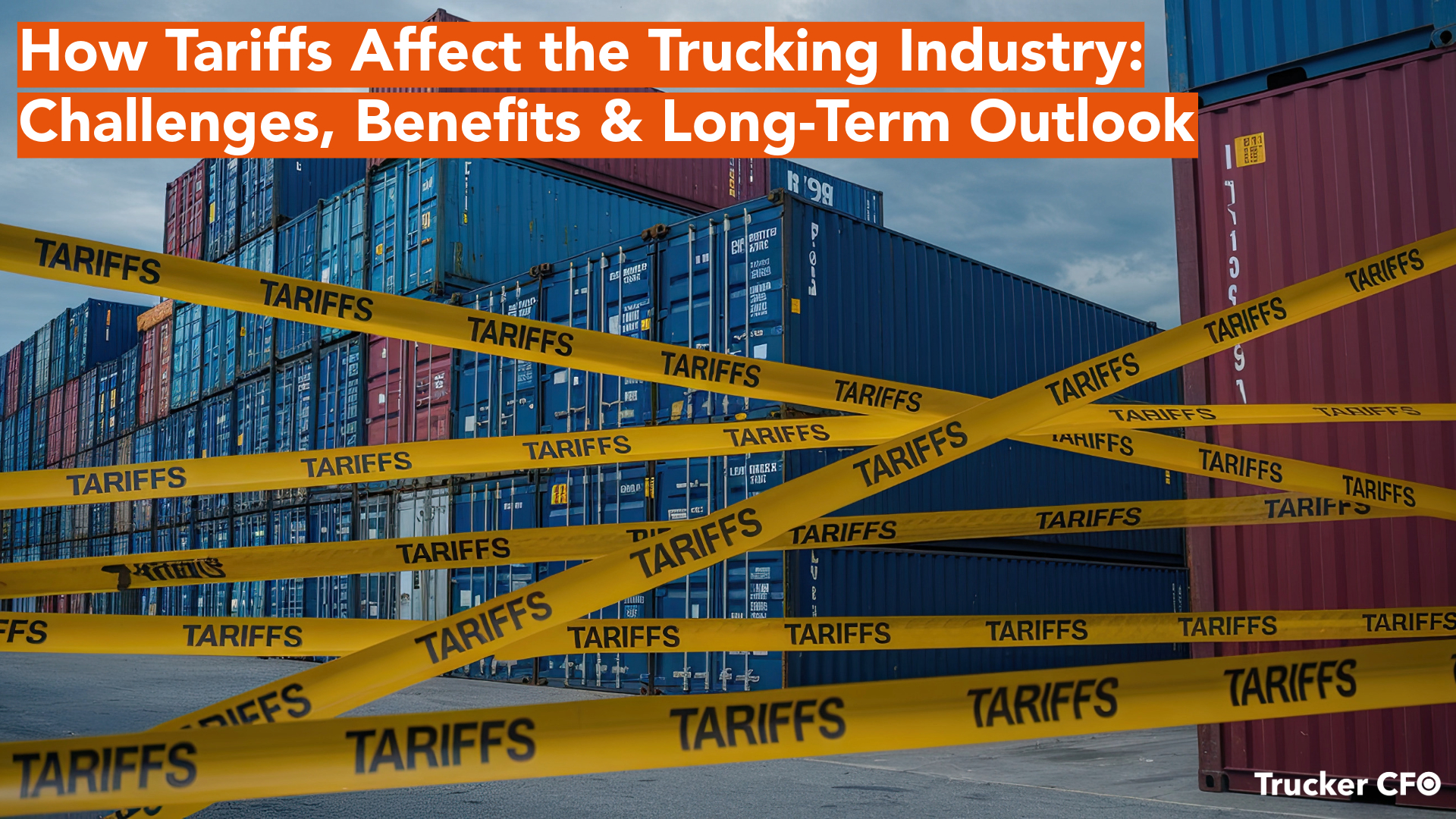
Tariffs often spark controversy across industries, and the trucking sector is no exception. While many focus on the immediate disruptions and rising costs, tariffs—especially those implemented during the Trump administration—have also brought strategic advantages, particularly for American small-business trucking companies.
In this article, we explore the impact of tariffs on the trucking industry, offering both short-term considerations and long-term opportunities for fleet owners, logistics companies, and independent operators.
Understanding Tariffs and Their Purpose
Tariffs are taxes imposed on imported goods. Their purpose is to make these goods more expensive, encouraging consumers and businesses to purchase from domestic producers. There are two main types:
- Specific tariffs (fixed fees per unit)
- Ad valorem tariffs (based on a percentage of the product’s value)
Tariffs have historically been used to generate government revenue, protect emerging industries, and negotiate fairer trade agreements.
During the Trump administration, tariffs were reintroduced as a strategic lever to address trade imbalances, particularly with countries imposing higher duties on U.S. goods. The stated goal is to level the playing field for American manufacturers and the businesses that support them, including the trucking industry.
Short-Term Challenges for the Trucking Industry
1. Higher Equipment & Operational Costs
One of the most immediate consequences of tariffs is the increased cost of equipment and parts. For example, the American Trucking Associations (ATA) noted that a 25% tariff on imports from Mexico could raise the price of a new tractor by as much as $35,000, placing serious strain on small fleets.
These increased costs also extend to maintenance supplies, replacement parts, and certain fuel types—all of which affect the profit margins of trucking companies operating on already-tight budgets.
2. Freight Volume Disruptions
Tariffs can disrupt global supply chains, which in turn affect freight volumes and logistics timelines. Many small trucking companies experienced a temporary dip in shipments, leading to uncertainty among shippers and brokers.
3. Regulatory Complexity
As trade policies shift, trucking companies must adapt quickly to new compliance requirements, customs processes, and documentation protocols—often without adequate infrastructure or support.
Long-Term Strategic Benefits of Tariffs for Trucking
Despite the short-term pain, many in the industry, including Trucker CFO‘s Colton Lawrence, see tariffs as a critical long-term strategy that benefits American trucking businesses.
“These tariffs represent a critical step in putting American businesses back on equal footing with our global competitors… this strategy ultimately strengthens our domestic economy and supports an America First approach.”
— Colton Lawrence, Trucker CFO
1. Stronger Domestic Manufacturing = More Domestic Freight
Tariffs push manufacturers to source and produce locally, which leads to a higher demand for domestic freight transportation. Instead of importing goods, companies turn to regional suppliers—generating more business for U.S. truckers.
2. More Equitable Trade Conditions
By enforcing tariffs, the U.S. gains greater negotiating power to secure fairer international trade agreements, reducing the disadvantages previously faced by American businesses.
This trade rebalancing can help small trucking companies thrive in a market that supports domestic over foreign supply chains.
3. Growth in Trucking Employment & Infrastructure
As freight volume stabilizes and grows due to increased domestic production, the demand for truck drivers, dispatchers, and logistics support staff may also rise. This leads to job creation and potentially more investment in roads, fleets, and warehousing infrastructure.
A Balanced Economic Outlook
Not everyone agrees on the benefits of tariffs. Organizations like the ATA have cautioned that prolonged trade disputes could hurt the broader economy and slow recovery from freight recessions. The Tax Foundation estimates that tariffs could reduce U.S. GDP by 0.4% over the next decade and cost the average household $800 per year due to increased consumer prices.
That said, supporters argue that short-term inflation is a necessary trade-off for long-term industrial strength and independence—especially when it comes to national infrastructure and logistics.
What Trucking Companies Can Do Now
To stay competitive and resilient in this tariff-influenced landscape, trucking businesses—especially small operators—should consider the following strategies:
- Monitor trade policies and tariff changes to anticipate freight trends
- Build relationships with domestic producers and manufacturers
- Invest in fuel-efficient technologies and train drivers on cost-saving techniques
- Join industry associations like the ATA for access to policy updates and advocacy
- Leverage compliance software to stay ahead of regulatory shifts
Tariffs as a Catalyst for Trucking Industry Transformation
The impact of tariffs on the trucking industry is multifaceted—creating near-term challenges while opening doors for long-term growth. As domestic production strengthens and supply chains shift inward, trucking companies that adapt strategically will be best positioned to benefit.
Whether you’re managing a 50-truck fleet or just getting started, understanding how tariffs affect freight demand, equipment costs, and market dynamics is key to long-term success in a changing global economy. If you have questions about how tariffs could affect your trucking business or need help navigating the financial impact, don’t hesitate to reach out—we’re here to help.
